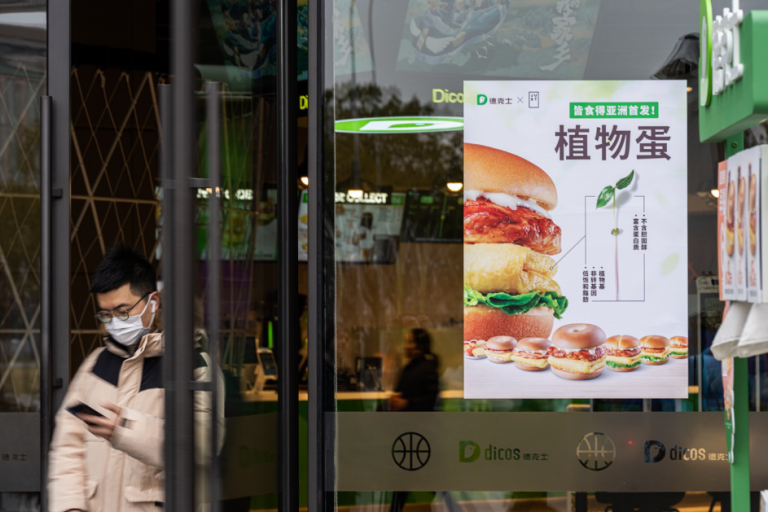The growth in China’s auto market: Automobility

2018 was not a good year for automakers in China. Indeed, car sales have declined of 11 percent in October 2018 with an average of a 6 percent drop that year. The amount purchased by car dealerships also decreases. The US-China trade war is not helping American car brands. Foreign car manufacturers are more impacted by this slowing demand than their Chinese counterparts. Factories that required billions of dollars to be built in China struggle staying open. It is the first time since the 1990s that the Chinese car market appears to slow down. China’s car market has been one of the most reliable source of global growth for foreign and local car companies for decades. What was once considered an opportunity is now coming to an end. Companies are facing complex challenges if they want to stay on the market.
Cost-Effective Agency
KPI and Results focused. We are the most visible Marketing Agency for China. Not because of huge spending but because of our SMART Strategies. Let us help you with: E-Commerce, Search Engine Optimization, Advertising, Weibo, WeChat, WeChat Store & PR.
A growing demand for mobility products and services
Whereas car sales thus, the demand for owning a car decrease, the demand for mobility products and services continues to rise. It is estimated that “automobility” revenues will generate 10 billion dollars more than last year which is equivalent to a total revenue of 590 billion dollars for 2019. By 2025, this figure is even expected to reach 1 trillion dollars. This rising demand for mobility products and services is in part due to the growing population of urban residents who have higher disposable income and often needs to move around mainly for work but also personal purposes.

These consumers face three choices to answer their needs. The first one is to buy or lease a car for a long term from a dealership. Whereas less Chinese consumers buy cars, more and more of them buy or lease used cars. Indeed, the number of good-quality used cars is increasing and their price is more attractive. The second choice that Chinese consumers are facing is to pay for a single use of the car such as Didi’s ride-hailing services. The individual pays to drive or ride in the car once. The third and most used ones are the use of public transportation such as the subway or the bus.
Connected, electric and autonomous vehicles
The demand for the second option, pay per use of the car is a growing demand. Digital companies such as Baidu, Alibaba Group Holding and Tencent Holdings are satisfying this demand successfully. Indeed, they already provide convenient mobile payment services and are focusing on digital user experience. By doing so, they created a whole new competitive landscape in China.
Their efforts and spending into research and development and artificial intelligence permitted the creation of connected, electric and autonomous cars. They took automobility services to another level. The self-driving tests of these cars in Beijing and Shanghai were proven successful. It is just a matter of time before being available to consumers. In order to stay competitive, car manufacturers need to rethink their business model.
Didi, China’s largest mobility service platform

We can take the success of Didi Chuxing as a representative example of the actual situation of the demand for mobility services by Chinese consumers. Didi is a ride-hailing company and is China’s largest mobility service platform. It has 550 million registered users and completes an average of 30 million trips a day, a demand increasing day after day. Thanks to the significant demand for short-distance ride-hailing in China, the Chinese startup, founded in 2012, is today valued at 50 billion dollars. It is considered the world’s leading mobile transportation platform and among the most valuable startup of the technology sector.
This success is related to the convenience of the platform. You can order different kind of rides from your mobile device connected to a wireless network providing broad reach and user mobility. A real-time location and discussion feature with the driver is available in addition to excellent customer service. The payment process goes through online mobile payment platforms such as Wechat pay and Alipay. It is fast and secure. The convenience that this service offers generates repeated purchases from consumers. Their consumer behavior change. Chinese consumers even use their own cars an average of one day less per week.
The result: a drop in car sales.
A new business model
Numbers have encouraged investments in ride-hailing companies. Other types of shared-use vehicles are public transportation and carpooling. They accounted for 7 percent of China’s total passenger transportation in 2018. This number is expected to jump over 30 percent by 2025. Indeed, the abundance of investments will help technology startups such as Didi innovate their services even more. This situation does not sound promising for car manufacturers and car dealerships in China. The sales of new cars will continue to slow down. Profits will keep decreasing if companies do not change their business model soon. The old business model of car manufacturers and car dealerships was based in part on the underutilization of the car once it was sold. The less it was driven, the more money they would make. The actual business model of automobility services companies is the opposite. The more the car is driven, the more the profit. Indeed, the more the kilometers, the more the service is consumed.
The principle of this business model is based on the fact that cars can deliver everyone, not only cars’ owners.
How to adapt to a changing consumer behavior?
Be realistic
The size and speed of change make the Chinese market always full of opportunities. Car makers should grab them and keep China at their center of attention. This means developing an empowered corporate organization in the country. They need to modify their business model, goals and develop market-specific skills.
Digitalize your industry
Automobile companies should start also focusing more on digital and mobility services. In order to do that, they need to develop their digital services to reach online users and form relationships.

It is necessary for today’s China to innovate in the digital economy and create long term relationships with its mobility service users.
These digital services include:
- Having a local website designed for both computers and mobile phones with 24/7 customer service
- Being present and generate content on Chinese social media ( Wechat & Weibo)
- Having a Baidu SEO campaign in mandarin
- Being exposed to Chinese E-media specialized in the automobile industry
- Word of Mouth Marketing
Expand and diversify your services
Car makers should not only focus on building connected, electric and autonomous cars. Indeed, the market seems to be already well developed with major players such as the three Chinese companies cited above but also startups such as NIO, Weltmeister, and Byton already advanced in the field. Digital services need to be unique to users’ needs and personalized in order to create intimacy and trust with end users.

NIO, for example, is taking all its attention to the development of its mobility services before the sales of its cars. Indeed, it expects the main source of its revenue to come from mobility services in a near future. As a consequence, NIO is actually developing a car battery-swapping service. It is also building a hub of NIO Houses, something completely different from cars to expand its services and platforms. It is a space available for the ones in need of a car-related service. They have somewhere to stop and wait comfortably with other passengers while the service is provided. By doing so, the firm also serves friends and relatives of the car user. Car manufacturers and dealerships need to focus on building relationships with others than just car owners.
Personalized your services

Customized innovations are the key to attract Chinese consumers. These innovations can be in terms of products but also services. Chinese consumers have digitally connected lifestyles and thus, are very demanding in terms of customer services. They expect it to be accessible at all time, efficient, personal and high-end. Foreign companies need to find new ways to innovate.
This demand for mobility service is not only concerning China. On the contrary, it is a phenomenon expected to rise in other countries too. Indeed, mobility services are spreading. As of today, Didi is also successfully operating abroad in countries such as Australia and Mexico. Furthermore, it is investing in similar companies around the world such as Lyft, Grab, Ola, 99, Taxify, and Careem. This strategic move created a ride-hailing informal network covering 80 percent of the world’s total population. Car manufacturers and dealerships’ traditional business model does not guarantee success anymore. They need to adapt to the market in order to have a competitive advantage. Car makers should focus on developing new skills in their digital ecosystem. Mobility services partnerships is also a way to stay on the Chinese market.
DO YOU NEED A COST EFFICIENT AGENCY
- Good service
- reasonable Price
- And Results
We are a performance marketing agency based in China .
- marketing strategies for companies looking to establish or reinforce their presence in China.
- to receive free advice related to the automobile industry in China, please contact us.
- If you need a quote, and see our package… Email better






